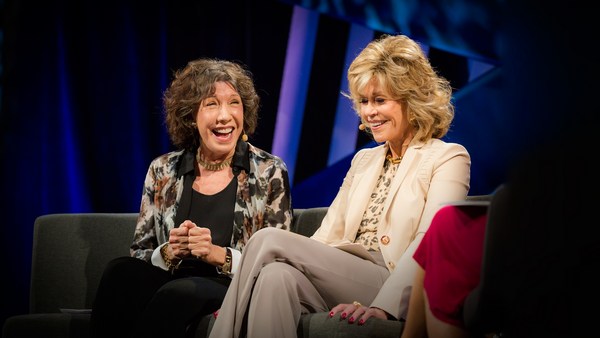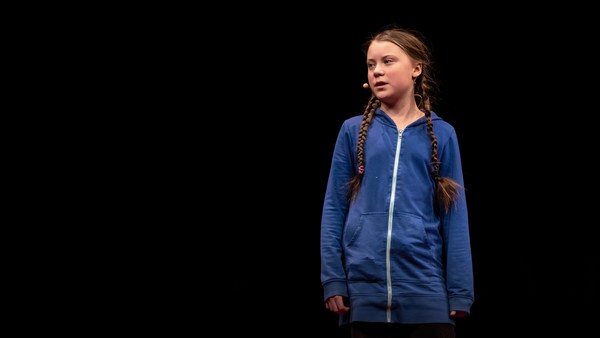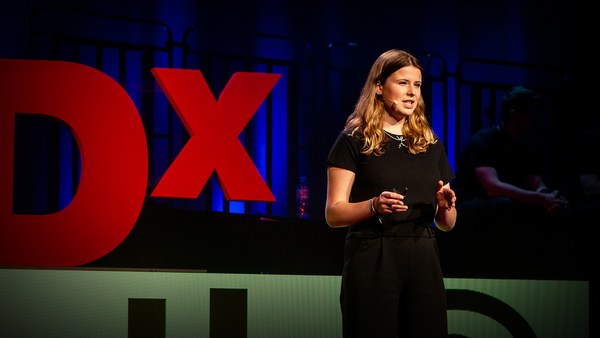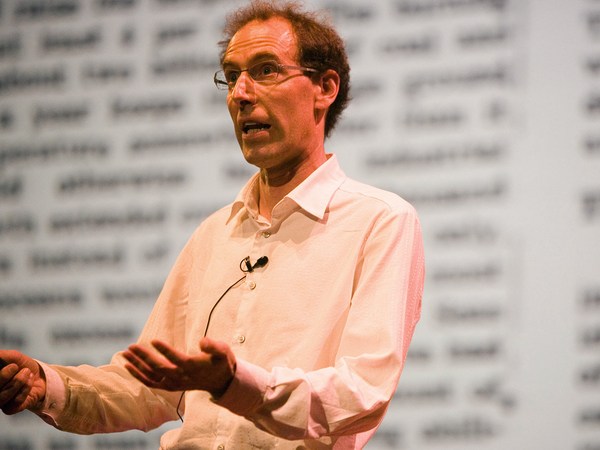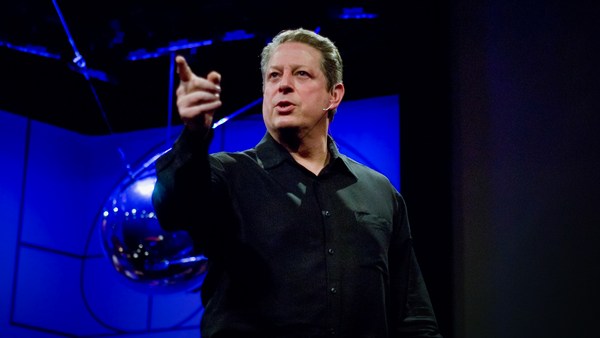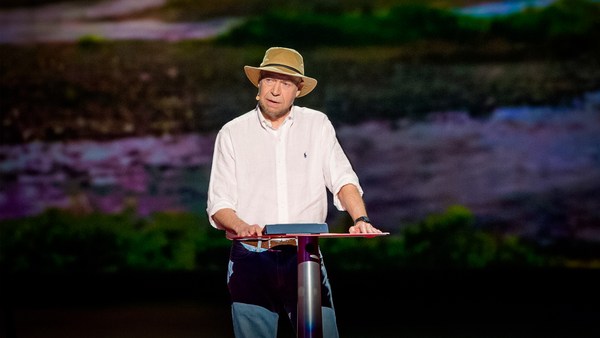Pat Mitchell: It's so great to see you, my friend.
Jane Fonda: Hi Pat. It's great to be with you.
PM: Jane, for the ones who may not have seen the extraordinary coverage around the world of Fire Drill Fridays and the impact that they have already had, talk to us about the origin of this idea, this particular response to the climate crisis.
JF: I was very inspired by Greta Thunberg, the Swedish student, and by the young school climate strikers. Greta says we've got to get out of our comfort zone. We have to behave like our house is burning, because it is. And so she really struck a chord in me. And then, learning that just about 100 percent of climate scientists agree. They agree that a drastic emergency is upon us, that it is human-caused. But they said we can do something about it. We have the time, the technology, the tools. We have everything we need except political will to meet the challenge, and it's an enormous challenge. We have 11 years, many say, a decade, and I thought, "Oh, I'm so lucky that I am healthy and living in a decade where we who are alive can actually make the difference. We can make the difference as to whether there's going to be a livable future or not. What a glorious responsibility we have. We have to step up to the plate."
And when you're famous, there's a lot of things that you can do. You have a bigger platform. So I decided that, like Greta, I was going to put my body on the line and move to the center of American power, Washington, DC, and have a rally every Friday like the students do. And we work with the students. They speak at my rallies, and I speak at their rallies. And then after we speak, we engage in civil disobedience and risk getting arrested. Civil disobedience is a powerful tool that has changed history many times, both in the United States in the '60s during the civil rights movement, of course in India with Mahatma Gandhi. And I didn't know in the beginning if it was going to work or not, but it's made me very happy to see what's happening.
PM: It's also led to your being arrested -- multiple times, actually, spending at least a night or two in Washington, DC jails. And while all of us, I think, recognize the emergency and the actions that you so kindly mentioned others have taken, I'm not sure that we would put our bodies at risk, our lives, our careers and our lives on hold, as you have done. Do you have any concerns about that at this point?
JF: Well, I realize that not everybody can leave work and go and do what I'm doing. But I must say that requests are pouring in, not only from around the United States but from other countries, people who want to start Fire Drill Fridays. And the people who are coming and getting arrested with me and engaging with civil disobedience, many of them have never done it before, and they find it to be transformative. But the fact is that there are so many things that people can do, starting with talking about it, expressing how you feel about it and talking about it, even when it's uncomfortable. At a holiday dinner table and maybe Uncle Bob doesn't agree, but, you know, maybe Uncle Bob is worried about his grandkids, maybe he loves birds. There's always a way in with people to get them to feel concerned about the climate crisis. Of course, voting is very, very important, and we have to vote for the people that are the bravest, the boldest of our elected officials, because the task ahead of us -- all over the world, but certainly here in the United States -- we have to get rid of this current administration, and we have to elect people that are really brave, that will step up --
(Applause)
and do the bold actions that are needed, the way Franklin Delano Roosevelt did during the 1930s, during the Great Depression, when he really changed a great deal about American society. And that's what is needed now.
PM: So Jane, we should also explain, because many people who are here are thinking, what can they do? Can they come to Washington and join you in this action? We should explain, not everyone who participates in Fire Drill Fridays is under threat of being arrested. There are other parts of what you're doing, like you are currently in the Greenpeace offices in Washington. So explain what else is a part of Fire Drill Fridays and how we could participate in civil disobedience without the risk of getting arrested.
JF: First of all, you want to try not do anything as a lone individual. You know, it's by our powers combined. There's strength in numbers. There's also community in numbers, and one of the hardest things about what we're facing now is: this is a collective crisis, coming at a time when the whole notion of the collective, of the commons, of the public sphere, is being eroded quite deliberately by neoliberalism and conservatism. And so reconnecting with groups of people, like-minded people in a common action, is solace to the soul. It gives you such strength. It's a great antidote to depression. So find out what organizations that are concerned about the climate crisis are in your area. Of course, Greenpeace has chapters all around the world. And even if you just start yourself, have house parties, invite people over to talk about what's happening. Find an article that you can all read and discuss together. Obviously, if there's a climate action where you live, try to join it. It's not necessary to engage in civil disobedience and risk getting arrested, but it is going to become the new normal, I think. It feels like it is here in DC with Fire Drill Fridays. People seem to want to come back and do it again. My grandkids just got arrested last weekend. It was a transformative experience.
(Laughter)
My fellow actor Sam Waterston, who is a self-described centrist, he had never spoken at a rally or risked getting arrested, and he was arrested with me. Last week, I see that he was arrested at the Harvard-Yale game. He sent me a picture of himself in handcuffs, saying, "Now look what you started!"
(Laughter)
You know, we're at a point, I think, in this crisis where people are looking to take the next step. They want to put their bodies on the line, as Greta Thunberg has exhorted us to do. And they find it very rewarding, and they want to do it again. So I think that this is good, what we're doing. I met with the Senate [Climate Change Task Force] a few weeks ago, and I asked the senators, "Is there something else we should be doing? Should we be doing more?" And Senator Ed Markey said to me, "You're building an army. That's what we need. Make it bigger. We need pressure from the outside." And I think that's true all over the world. People need to be amassing armies for the climate, armies for the environment, in the streets, shutting down governments if necessary. I'm thinking of Brazil right now. You know, we can't allow the burning of our precious rainforests.
PM: And as you have done so many times in the past, Jane, you are leading these changes. Eventually, one assumes, especially the fans of "Grace and Frankie," that you will go back to your life and resume that program. But will Fire Drill Fridays continue?
JF: Well, there's been such an interest in it, as I said, from all around the country, people asking if they can start one. And, you know, I have a lot of celebrity friends who haven't, for scheduling reasons, been able to come to DC, so we're thinking about maybe doing it in Los Angeles. But I just want to correct one thing: I'm not leading. It's the young people, it's the students that are leading. It's always the young people that step up with the courage, and it's pretty amazing, because they're risking a lot. It's pretty brave to take a Friday off from school. You could get bad grades. You could make your teachers mad. But they're doing it anyway. There have been millions of them at a time, all around the world. And they're saying, "Don't let us have to deal with this by ourselves. We didn't create this problem. Come and help us." So, Grandmas unite!
(Laughter)
(Applause)
PM: And you are in a city that is probably more divided than it has been in a very long time. The polarities that exist there and in many other places around the world have kept our collective strength from being unified and used, and in that way, you have been leading us. What would success look like to you from Fire Drill Fridays?
JF: Well, I can just speak as a citizen of the United States. Success would look like every state stops all new fossil fuel expansion, because if they keep drilling and fracking and mining, the problem will just get worse, so that no matter what we do with windmills and solar collectors and so forth, we'll never be able to catch up. We have to stop all new expansion. The other thing is, they would phase out fossil fuel emissions gradually, making sure that the workers who would be impacted would be retrained at union wages and get good new union jobs. There are going to be so many good jobs with the Green New Deal, building windmills and solar collectors, retrofitting all the houses in this country, for example, laying a new energy grid. There's tens of millions of jobs waiting to be unleashed, and that's the other thing that has gotten me mobilized.
A Green New Deal is a framework for how to take ourselves into the future in a way that's sustainable and equitable. So that just gives you such hope, because if we do it right, it's going to be a win-win for everyone. And that has to be the case, or it won't work, because to make this work, everybody's going to have to be involved. And in order for everybody to be involved, they have to see something in it for themselves, and that's what a Green New Deal does.
PM: Jane, you, as always --
(Applause)
as you have done so many times in your life, you have taken risk, and you have stepped up to the front lines. Do you leave this experience with any new learning or a new level of commitment, hope or optimism?
JF: Yeah, I am optimistic. People in this country are really scared about the climate crisis, and they want to do something, but nobody has asked them. We just have to ask them. We have to get organized, you know? And we can do that. So I feel very hopeful. I must say that I am going to go back to work on "Grace and Frankie," but part of my heart is going to be with Fire Drill Fridays, and I hope I can continue with that. I just think that we do have to build an army. This coming year is the critical year. What happens is going to be so important. So we have to be sure, especially someone who's healthy, who feels relatively young, who has a platform -- we have to use it in every possible way we can. And if I didn't have that, then I would find other little ways that I could do it: talk to my neighbors, talk to my friends, talk to my family, join an organization. That's how, also, as I've said, to stave off depression, is to do something active.
PM: Jane, at 81, you are modeling what that can be like for sure, and I think we just recruited a new army.
(Applause)
Thank you very much, my friend. Stay safe. Thank you for all that you have done for the planet and so much else.
JF: Thank you, Pat.
PM: Join me in thanking Jane.
(Applause)
